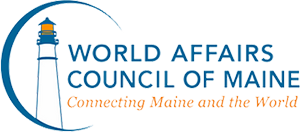The New Future for the Arctic panel discussion at the UArctic Assembly 2022

On the concluding day of the UArctic Assembly meeting in Portland, Maine a special session took place examining "The New Future for the Arctic", was chaired by Senator Angus King of Maine – Co-Chair of the U.S. Senate Arctic Caucus.
Russia’s unprovoked invasion of Ukraine has caused a radical geopolitical shift among the international community, but it has also brought the global dependence on fossil fuels and rare minerals into sharp focus, as well as the collaborative spirit of the Arctic community. The discussion focussed not just on the impacts of the current geopolitical crisis, but also the longstanding critical issues of climate changem resource use, and indigenous rights.
The panel demonstrated that the Arctic nations, peoples, academic institutions and companies are in position to take leadership in the transition to green energy solutions as well as the secure and sustainable supply of critical raw materials to reduce dependence on unreliable or undesireable, sources.
The panel discussion included both academic experts and policy makers from the Circumpolar North:
- Angus S. King Jr., U.S. Senator for Maine
- Lars Kullerud, President of UArctic
- Kjell Stokvik, Manager of Nord University’s Centre for High North Logistics
- Karla J. Williamson, Assistant Professor, University of Saskatchewan
- Melody Brown Burkins, Director of the Institute of Arctic Studies, Dartmouth College
- Justin Milton, Mittimatalik (Pond Inlet), Nunavut
- Drew Horn, Founder and CEO of GreenMet
- Catherina Hvistendahl, First Secretary / Greenland Representation in Washington, D.C
- James DeHart, U.S. Coordinator for the Arctic Region, U.S. State Department
- Rodger Cuzner, Consul General of Canada, Boston
Senator King emphasized the importance of having the commitment from both academic and political sides: “We have networks and institutions like the Arctic Council, that didn’t exist 25 years ago that allow us to have the kind of dialogue that’s necessary. The question is when and how we pull Russia back to that discussion. We have to hold tight to those institutions and strengthen them. And one way is through engagement of the academic world with the political world.”
Melody Brown Burkins called up for using and promoting sustainable and equitable principles when it comes to investment in the Arctic region: “We have some roadmaps in front of us, recognizing that the future of investment needs to be based on the principles of human rights, sustainable development governance. Those frameworks like the Arctic Investment Protocol say that whoever and wherever you are in the world you need to adopt these if you are going to be a part of this, and do it meaningfully."
Justin Milton voiced the perspective of indigenous communities in the North: "Building capacity in both ways is important. Building capability on the northern side - building economic incentives and retaining the cultural values that we know and love - but also building capacity from the institutional Western side, so that they can learn things like what our values are for the land, what worldviews and ways of knowing that we have because who better to ask about the land in the Arctic than the people who have lived there since time immemorial?”
UArctic thanks all the participants and the hosts who helped organize this important session.
You can watch the video recording of the panel discussion below:
The event was co-sponsored by the World Affairs Council of Maine and the Maine North Atlantic Development Office at the Maine International Trade Center.


